Tame Your Anxiety
Tame Your Anxiety
Rewiring Your Brain for Happiness
Loretta Graziano Breuning
ROWMAN & LITTLEFIELD
Lanham Boulder New York London
Published by Rowman & Littlefield
An imprint of The Rowman & Littlefield Publishing Group, Inc.
4501 Forbes Boulevard, Suite 200, Lanham, Maryland 20706
www.rowman.com
6 Tinworth Street, London SE11 5AL, United Kingdom
Distributed by NATIONAL BOOK NETWORK
Copyright 2019 by Loretta Graziano Breuning
All rights reserved. No part of this book may be reproduced in any form or by any electronic or mechanical means, including information storage and retrieval systems, without written permission from the publisher, except by a reviewer who may quote passages in a review.
British Library Cataloguing in Publication Information Available
Library of Congress Cataloging-in-Publication Data
Names: Breuning, Loretta Graziano, author.
Title: Tame your anxiety : rewiring your brain for happiness / Loretta Graziano Breuning.
Description: Lanham : Rowman & Littlefield, [2019] | Includes bibliographical references and index.
Identifiers: LCCN 2018047271 (print) | LCCN 2018047913 (ebook) | ISBN 9781538117774 (electronic) | ISBN 9781538117767 (pbk. : alk. paper)
Subjects: LCSH: HappinessPhysiological aspects. | NeurotransmittersPopular works. | Self-care, HealthPopular works.
Classification: LCC QP401 (ebook) | LCC QP401 .B75 2019 (print) | DDC 612.8/23342dc23
LC record available at https://lccn.loc.gov/2018047271
 The paper used in this publication meets the minimum requirements of American National Standard for Information SciencesPermanence of Paper for Printed Library Materials, ANSI/NISO Z39.48-1992.
The paper used in this publication meets the minimum requirements of American National Standard for Information SciencesPermanence of Paper for Printed Library Materials, ANSI/NISO Z39.48-1992.
Printed in the United States of America
For my grandchild,
Josephine Lorraine Breuning Evans
Contents
Introduction
My Close Encounter with Cortisol
I changed a powerless feeling to a powerful feeling by focusing on the power I had.
A nxiety can start from something small and spiral into something big. This happened to me recently, and it helped me build new skills.
The spiral started when I tried to clean up a messy pile on my desk. I had ignored the pile for months because I was busy with a project. Now the project was finished and the pile started to bother me. I decided to invest time cleaning it up. I picked up the paper on the top of the pile, but it required a decision I wasnt ready to make. So I pulled a sheet from the middle of the stack. That one stymied me too. After a few minutes of frustration, the pile didnt get any smaller and I decided to do it tomorrow. The next day, just looking at the pile gave me a bad feeling. Those old papers held reminders of old frustrations, disappointments, and failures.
The same thing happened with my sock drawer. It jammed when I tried to close it because it was too full. I ignored this when I was busy with the project, but now that I had time, I stopped to fix it. I picked up a sock that I rarely used and thought about where to put it. I wondered why my life no longer required this sock, and whether that would change. I couldnt answer that question, so I moved on to another sock. A bad feeling turned on that was curiously familiar. I grew up seeing my mother rage when she tried to shut an overstuffed drawer. I felt powerless and scared when my mother raged. Now my socks were triggering that feeling despite my good intentions.
Decluttering became a fad around this time. Everyone seemed to be reading a book about tidying up. I didnt aspire to be tidy, but there were junk zones in my house that upset me whenever I passed them. Everyone else seemed to be enjoying the decluttered life, and I wanted it too. I set the intention and read the book.
But each time I tried to winnow my clutter, bad feelings surged. I am usually decisive, but when I entered my junk zones, I couldnt even decide where to put a paper clip. Would I need paper clips in the future? I didnt think so, but I wasnt ready to give up the possibility of such a future either. Each item raised uncomfortable questions about my future. The bad feeling got worse when I saw dust bunnies beneath the clutter. They gave me a sense of urgency that I kept failing to relieve.
I seized on the idea of giving stuff to my kids so I could happily imagine my stuff having a future. But my kids rejected the offer with an absolute no!
I was stuck. I accepted that I had a problem and needed help.
So I turned to the wisdom of the internet. I searched on the words decluttering services, and stumbled on a blog post called Why Your Kids Dont Want Your Stuff. The author of the post seemed to understand me. She was a local home-organizing consultant, so I called for an appointment. I told her I just wanted a one-hour chat rather than the full OCD treatment. Her minimum was two hours, so I went with that.
Those two hours changed everything. She asked me what I love to do but never make time for. I said I wanted to read the books that were piled up everywhere. She told me to spend a half hour decluttering and then a half hour reading. She pushed me to schedule these decluttering sessions on my calendar. I chose to do three a week. As I typed it in my calendar, I was excited about the books I would read.
The consultant wanted me to continue until the whole house was done, but I only wanted to clear up my junk zones. She strongly advised against that, and I strongly refused her advice. Suddenly, I had a sense of clarity about my future. I liked having a project. I did not want to be a neatnik. I couldnt wait to relieve the clutter so I could start on my next project. I had been stalled because I was waiting for support. I realized that I needed to start a new project with or without support. I would start as soon as I cleared up those junk zones, with or without the consultants approval. Suddenly, I was eager to clean them up.
I defined the goal precisely: to clear up my desk, sock drawer, and five other disaster areas around the house. Clearing up means emptying them entirely so they could be cleaned, and then refilling them 90 percent so Id always have some free space. I imagined the serenity Id enjoy when it was done.
I disagreed with the consultant on another issue: recycling. She wanted me to throw things in the garbage and I couldnt stand to do that. I hired her with the assumption that shed know good places to donate items. But the more I raised the issue, the more she insisted that I would never get it done unless I put things in the garbage. The more she said that, the more I realized that I needed to find a good home for my stuff in order to feel good about decluttering. It might slow me down, but I would finish, and I would enjoy knowing my junk had a future.
I invited my husband to the sit-down with the consultant. I had mixed motives, I confess. I could say I was being considerate, since it was his home too. But I was also hoping for help. My husband was kind enough to join the conversation, but he did not pull out his calendar. He was busy with his own projects and the mess in my closets was not his problem. As much as I longed to be rescued from this burden, I realized that I could do it faster without him. It was my junk, and my anxiety about the junk.
Two months later, I finished! I felt pride instead of fear and shame whenever I looked at those junk zones. I loved having a clean place to put things. I loved my new tool for tackling junk the next time it accumulates. Best of all, I could use that tool any time a little irritant spiraled into big anxiety.
What Worked?
The bad feeling I had when I looked at my clutter was caused by cortisol . This chemical is the brains signal that your survival is threatened. Of course I didnt consciously believe my survival was threatened, but cortisol makes it feel that way. Surprisingly big cortisol surges can spiral from surprisingly small triggers. Threatened feelings are easier to manage when you know how this happens. Lets take a closer look.
Next page
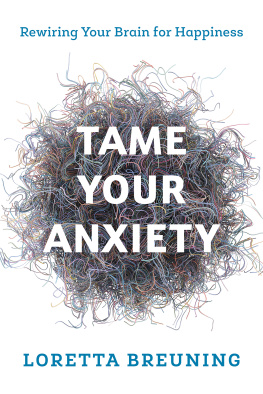
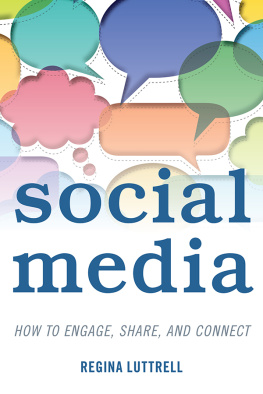



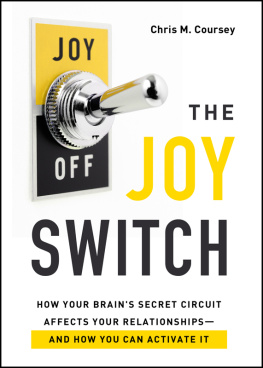
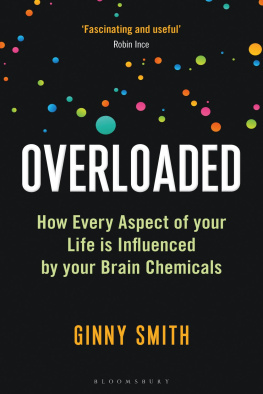
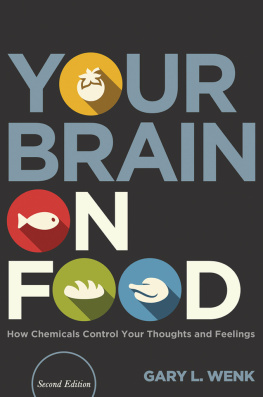
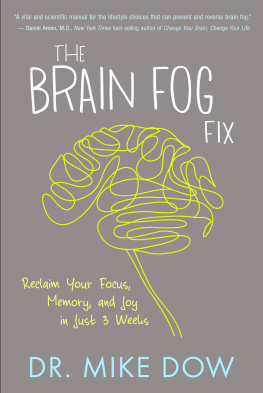
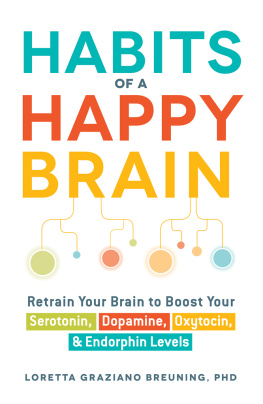
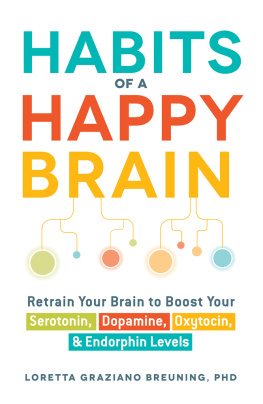
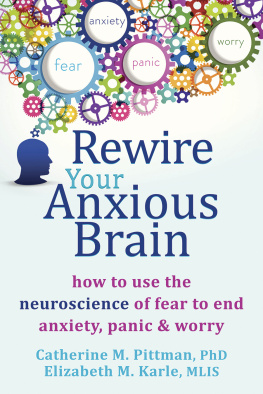
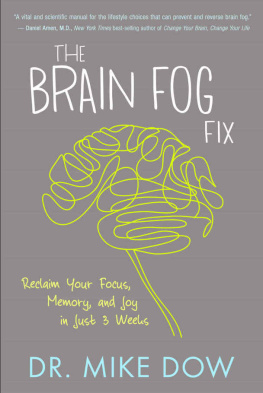

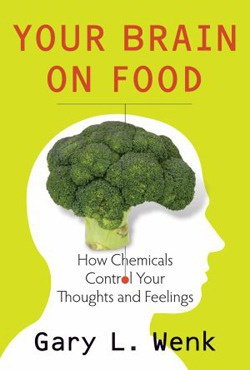
 The paper used in this publication meets the minimum requirements of American National Standard for Information SciencesPermanence of Paper for Printed Library Materials, ANSI/NISO Z39.48-1992.
The paper used in this publication meets the minimum requirements of American National Standard for Information SciencesPermanence of Paper for Printed Library Materials, ANSI/NISO Z39.48-1992.